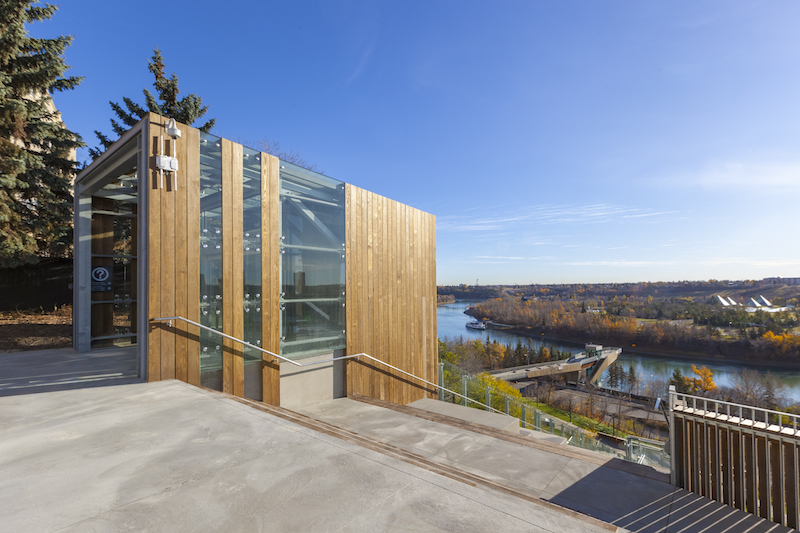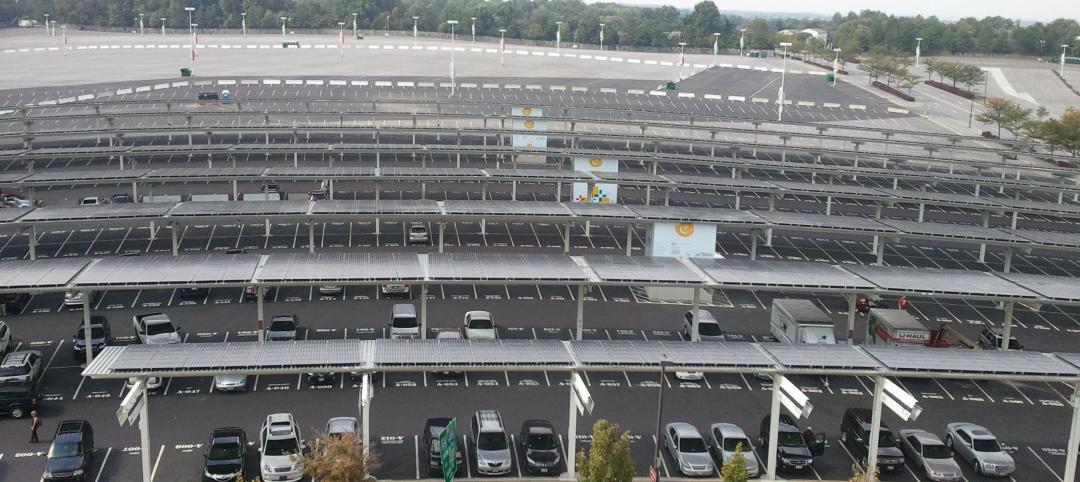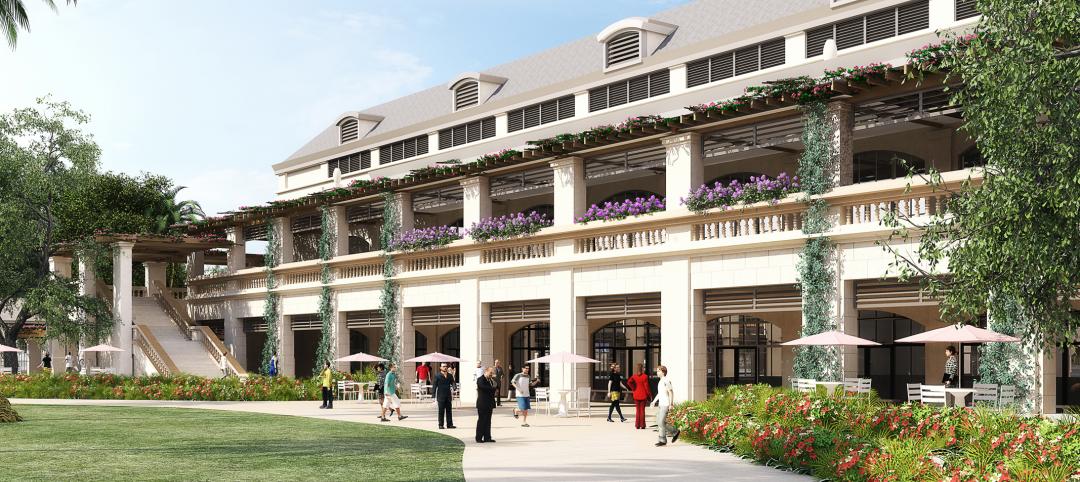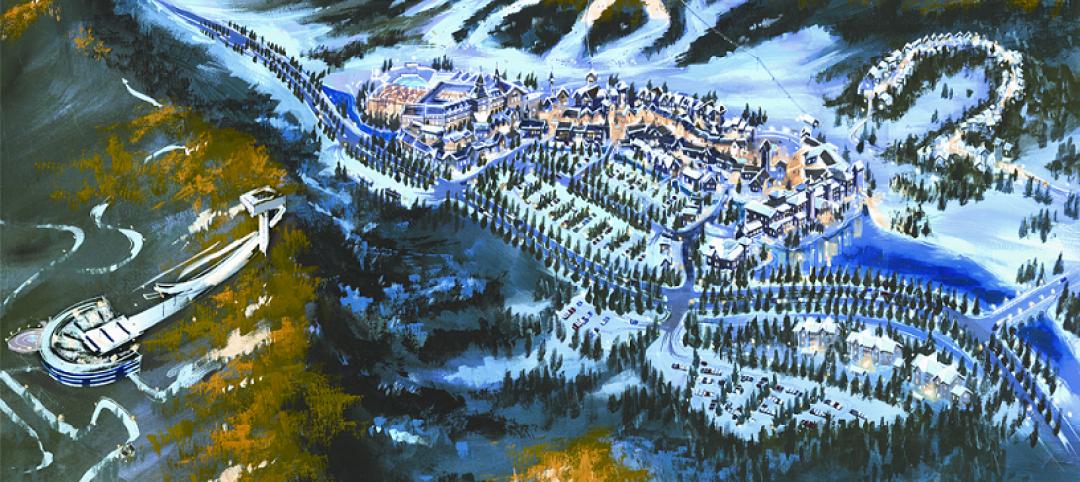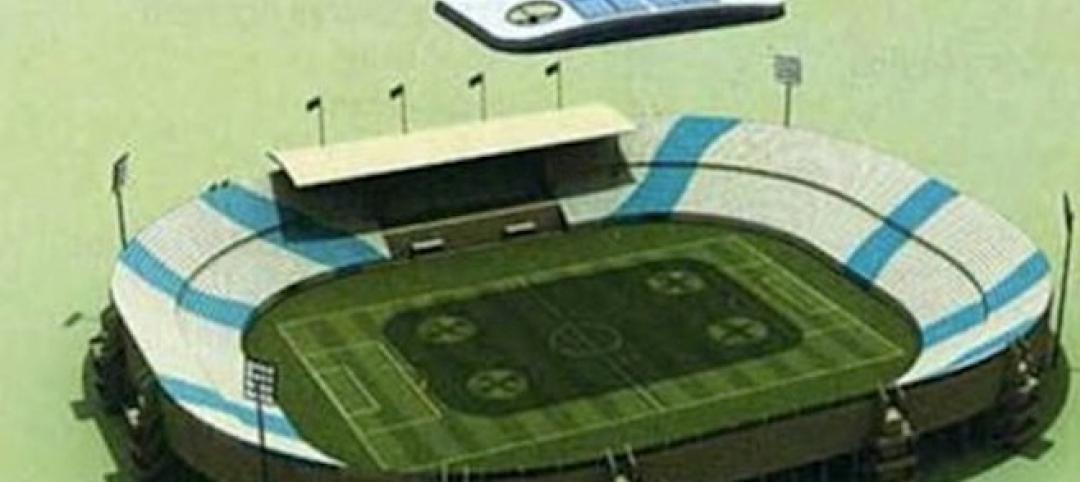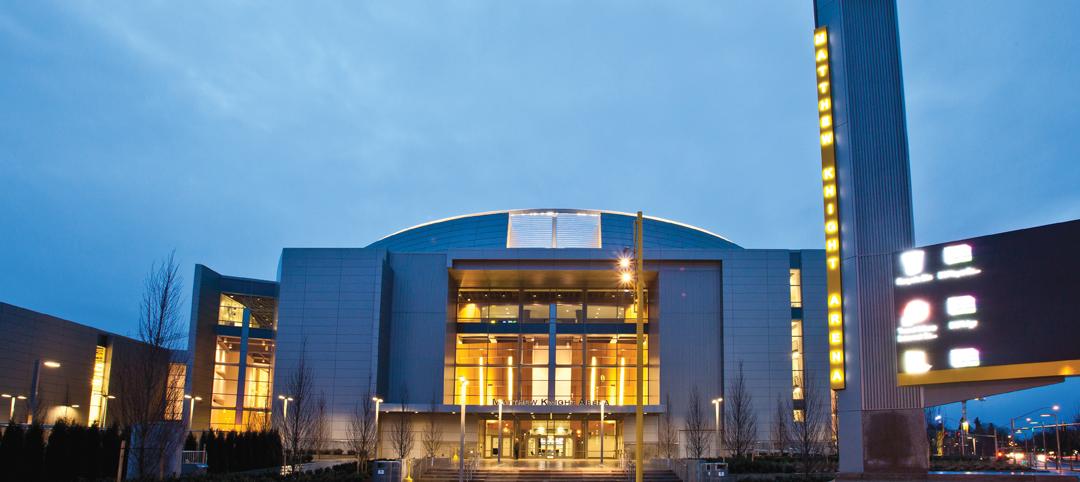The 100 Street Funicular and Frederick G. Todd Lookout, the newest funicular in Canada, opened in downtown Edmonton in early December. The $24 million cable-mechanized incline elevator can transport mobility aids, bikes, and strollers to make Edmonton’s river valley more accessible.
A staircase runs parallel to the funicular. The staircase features built-in concrete block seating and a special path for runners. The staircase features about 170 steps made out of Kebony wood, an eco-friendly wood known for its durability – it lasts six times longer than pressure-treated wood. The staircase and incline elevator both lead to a connected promenade and raised lookout.
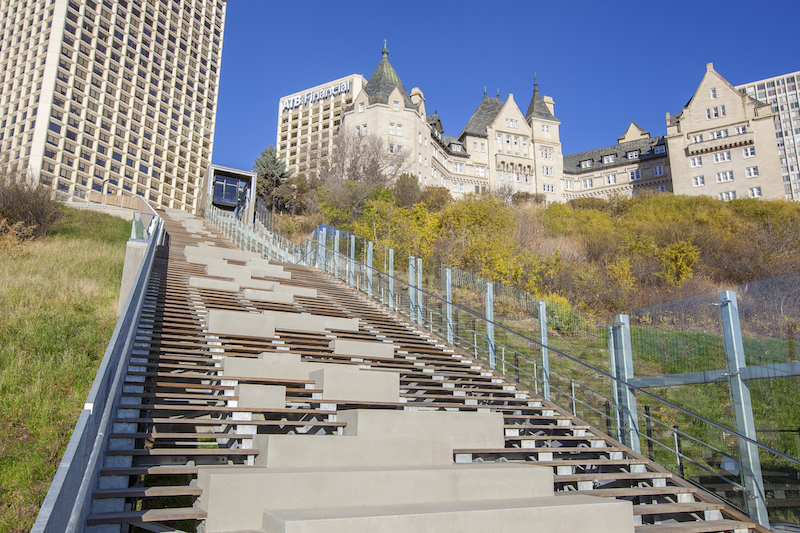 Photo: Brock Kryton.
Photo: Brock Kryton.
The funicular descends to the promenade and lookout point that provides unobstructed views of the river valley. From there, stairs or an elevator can be used to descend the rest of the way.
Dialog, the architectural firm behind the project, says the design was heavily influenced by the existing connective infrastructure of Edmonton’s river valley system. The Kebony wood stairs visually connect to the Kebony wood used on the boardwalk and architectural cladding.
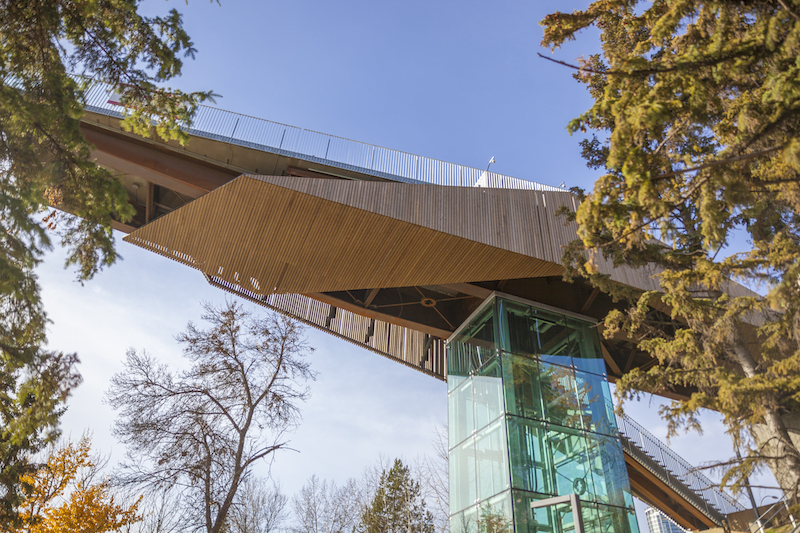 Photo: Brock Kryton.
Photo: Brock Kryton.
Braille on the funicular and elevator buttons, extra lighting, and security are all included to enhance accessibility.
Related Stories
| Sep 30, 2011
Design your own floor program
Program allows users to choose from a variety of flooring and line accent colors to create unique floor designs to complement any athletic facility.
| Sep 16, 2011
Largest solar installation completed at Redskins' football stadium
On game days, solar power can provide up to 20% of FedExField’s power.
| Sep 12, 2011
First phase of plan to revitalize Florida's Hialeah Park announced
This is the first project of a master plan developed to revive the historic racetrack.
| May 25, 2011
Olympic site spurs green building movement in UK
London's environmentally friendly 2012 Olympic venues are fuelling a green building movement in Britain.
| Apr 11, 2011
Wind turbines to generate power for new UNT football stadium
The University of North Texas has received a $2 million grant from the State Energy Conservation Office to install three wind turbines that will feed the electrical grid and provide power to UNT’s new football stadium.
| Apr 5, 2011
U.S. sports industry leads charge in meeting environmental challenges
The U.S. sports industry generates $414 billion annually. The amount of energy being consumed is not often thought of by fans when heading to the stadium or ballpark, but these stadiums, parks, and arenas use massive quantities of energy. Now sports leagues in North America are making a play to curb the waste and score environmental gains.
| Mar 25, 2011
Qatar World Cup may feature carbon-fiber ‘clouds’
Engineers at Qatar University’s Department of Mechanical and Industrial Engineering are busy developing what they believe could act as artificial “clouds,” man-made saucer-type structures suspended over a given soccer stadium, working to shield tens of thousands of spectators from suffocating summer temperatures that regularly top 115 degrees Fahrenheit.
| Mar 11, 2011
University of Oregon scores with new $227 million basketball arena
The University of Oregon’s Matthew Knight Arena opened January 13 with a men’s basketball game against USC where the Ducks beat the Trojans, 68-62. The $227 million arena, which replaces the school’s 84-year-old McArthur Court, has a seating bowl pitched at 36 degrees to replicate the close-to-the-action feel of the smaller arena it replaced, although this new one accommodates 12,364 fans.


